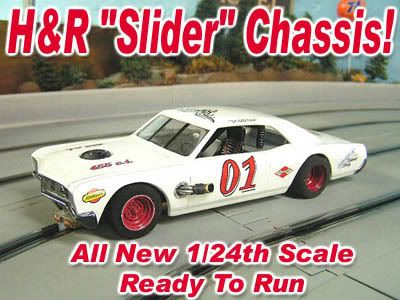
The following review is one I have personally waited to do for quite some time. I was fortunate to be behind the scenes during the creation of this chassis and it was not only a lot of fun, but a very eye opening experience. Finally after a few bumps in the road this chassis has arrived, so let us take a closer look at what H & R has brought us.
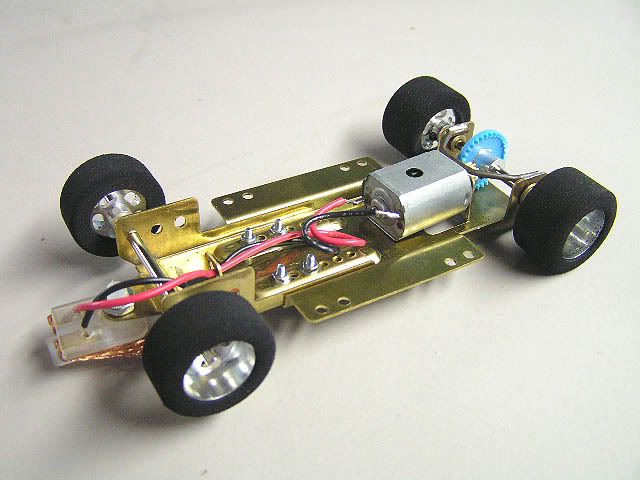
The first thing you might notice is the front end and the obvious adjustable hole settings it has. The chassis is a 2 piece format that has the front held in place by 4 small screws, 2 on each side. Having 2 sets of screws not only adds to the durability of the front end, but in the event you lose one at the track, you can still keep on racing.
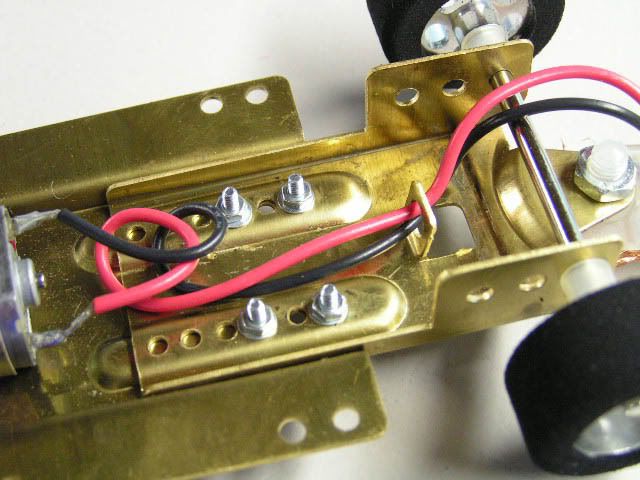
Simply by removing the screws, you can slide the front of the chassis to fit the wheel base you want to use and then just re-install and tighten them. This action is where the nickname Slider comes from.
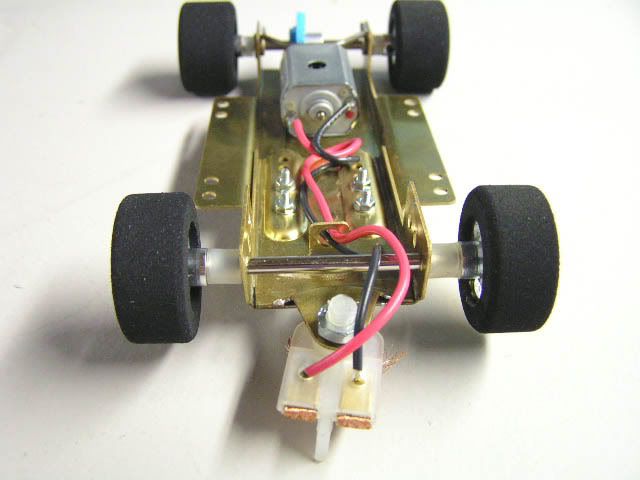
You also can see the front bulkhead has an additional 3 holes for even more wheel base adjustments. Between these 3 settings on top and the 6 on the front pan make it a very versatile chassis with combinations that will fit most any body application without major chassis modifications. This should be a welcome change for many modelers in this scale, I know it certainly is for me.
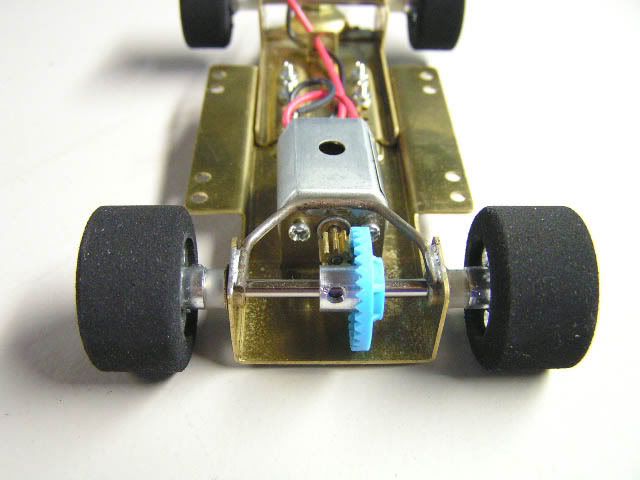
The wheel base options range from 5.075 inches down to 3.700. I have tested a wide variety of model kits in both 1/24 and 1/25 and this chassis can fit them all. If you are an advanced scratch-builder there are even more possibilities. The front section can be fine tuned to a particular body. If the bolt hole selection still is slightly off, simply soldered in place to suit the body in question.
This isn't the only thing that sets this chassis apart. On some chassis designs the axles were different sizes. On the Slider chassis both axles use 1/8 to allow easier and faster wheel changes. So if you needed to use the slimmer front wheels in the rear to clear your body, you can just simply install them without having to drill the wheel to fit the axle. Again, this is a very nice option and one that I have utilized already.
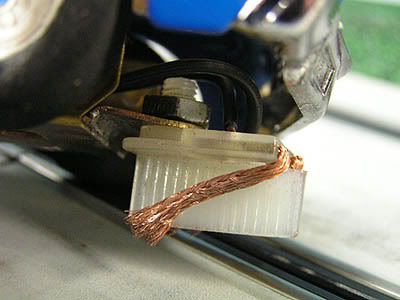
The motor used is familiar to many home racers and is quite powerful enough for most track applications. It is rated at 40,000 RPMS @ 12 volts and is equipped with a 9 tooth pinion that is turning a 33 tooth crown gear. Up front the guide used is pretty standard fare along with the braid.
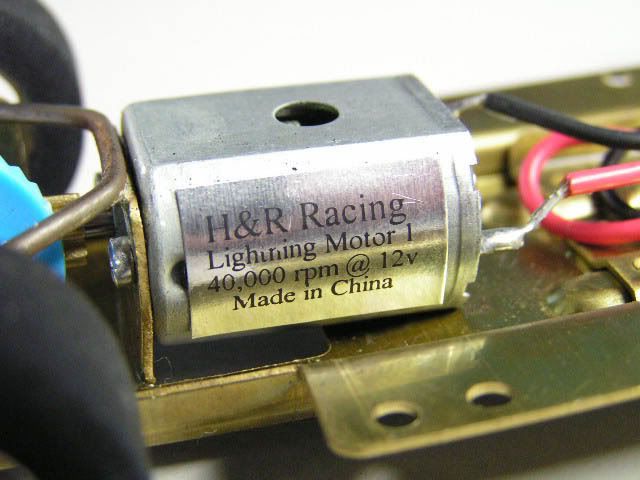
The rear axle utilizes bushings which I feel is more than sufficient but you can always change them to bearings if you feel you need to. The important thing here is that these bushings are very durable and sit solidly in the chassis. I found no signs of them spinning in the chassis under full power.
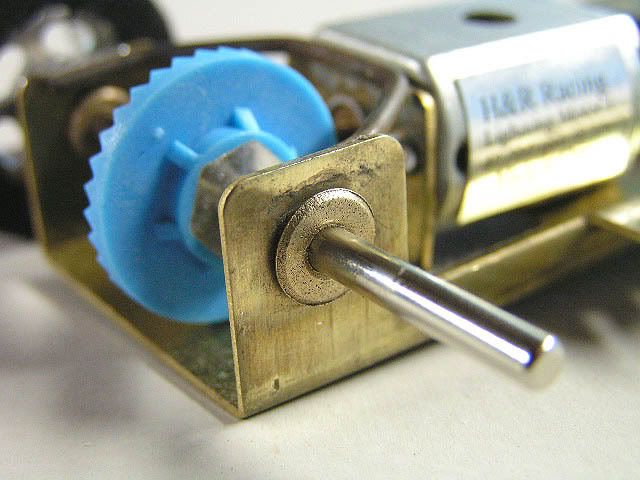
The width of the wheels are set with nylon bushings that you can trim to suit your particular model. Again, these bushings have been in our hobby for quite awhile and are very durable and easy to sand or cut for the proper setting.
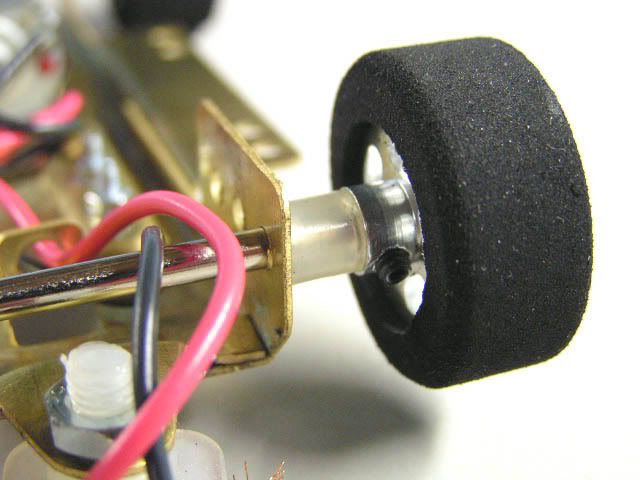
The tires are medium density foam glued to a new 5 hole aluminum wheel. This 5 hole pattern looks very good all by itself in my eyes, yet adding inserts for a more scale appearance is very easy to accomplish.
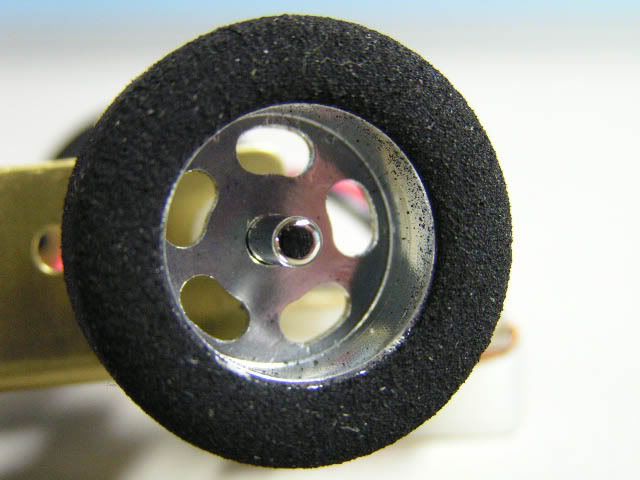
.....the review continues on Home Racing World at this link.








No comments:
Post a Comment